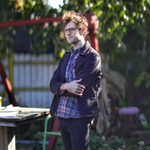Holism in practice & community
I've been reflecting upon the word 'holistic', which I feel is easy to throw around and not really consider the implications of its meaning. As an herbalist, I aspire towards a holistic perspective and approach in my work with clients, in my stewardship practices, and in my teaching. So I figured it couldn't hurt to spend some time every once in a while checking in with myself on what it really means to me.
For many practitioners, the holistic approach integrates the physical, mental, emotional, social, and spiritual aspects of health to support individuals and communities toward thriving and genuine well-being.
The problem is, I so often see the social and community aspects tossed aside to emphasize the individual as an isolated entity of healing and self-empowerment.
If we fail to see the social within the individual and forget the context and community our clients are embedded in, we aren't really working from a holistic approach.
These passages from Inflamed: Deep Medicine and the Anatomy of Injustice gets straight to it:
"The modern individual has been made through centuries of disconnection – from the world around us, from others, and even from our own bodies. While wellness trends can help us to reconnect on some level, they incorrectly focus on the power of an individual to improve their own health while ignoring – or worse, defusing – another power: our ability to collectively dismantle the hierarchies that cause these disconnections and consequently a large share of the illnesses that we face.
...
Truly holistic health must contend with the elements that continue to make all people unwell, locating the disease-causing entities in social structures and the grave misunderstandings that created them. Systems that position humans as supreme over the entire web of life, settler over Indigenous, a singular religion over all other world-views, male over female and nonbinary understandings of gender, white over every other shade of skin - these must be dismantled and composted. We must reimagine our wellness collectively, not simply as individuals or communities but in relation to all the entities that support the possibility of healthy lives. These relationships, precisely because they are vital for health, are worthy of our care."
– Rupa Marya and Raj Patel, p. 336-337
While somewhat indicting of the global holistic wellness industry–I feel that Marya and Patel's is needed. We have to acknowledge social factors, structures, and institutions as primary sources of individual and societal dis-ease if we are to really claim holism in our approach.
Most importantly, the work I attempt to cultivate with my clients and students necessarily must support them in becoming abundantly who they are, which often is at odds with the culture they are apart of.
It is important to be able to cope with what we are struggling with, but the work I offer is not limited to, for example, helping you focus better so you can be more productive at work. While it can include that, I'd much prefer to support you in developing strategies to cover the basics of health and wellness so you can, say, organize a union at your work :) while at the same time showing up fully for your self, community, and family.
This is all to say that as I deepen my clinical practice, I see so much potential in supporting my clients as individuals, acknowledging both the physiological and the social context that brought them to work with me, while at the same time inviting them to explore and bring forth their gifts – whatever those may be – to the world.
If you're interested in seeing what clinical herbalism has to offer, feel free to book a session with me below.


Member discussion